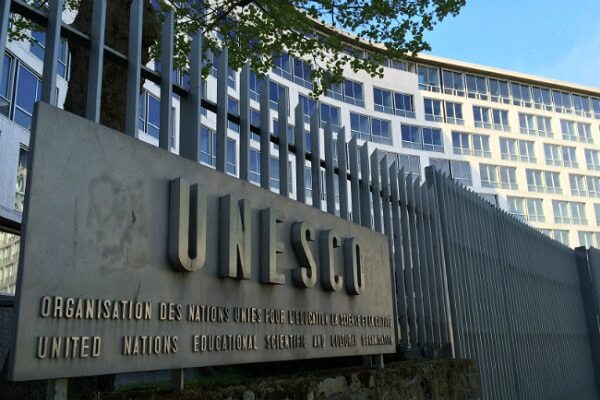1989…Black Box’s Ride On Time and The Bangles’ Eternal Flame hit No1 in the music charts. When Harry Met Sally and Honey, I Shrunk the Kids were box office hits at the cinema. The Berlin Wall came down. Boris Becker won Wimbledon. AND…
The United Nations adopted the Convention on Technical and Vocational Education.
1989 was quite a year!
33 years down the line, promoting the benefits of technical and vocational education remains a priority across the globe. And as part of this ongoing mission, it was a real privilege to take part in the recent UNESCO/UNEVOC webinar and to take stock of where we are at on promoting the vocational route. Plenty to reflect on, especially at a time when pre-empting evolving skills needs and delivering innovative reskilling initiatives are top of the agenda for policy makers and business leaders.
But let’s start with a few introductions….
UNESCO a specialised agency of the United Nations, it was established just after the 2nd World War to promote world peace and security through international cooperation in education, the arts, the sciences, and culture. The acronym stands for United Nations Educational, Scientific and Cultural Organization. I know UNESCO quite well, my dad, Malcolm Hadley, worked from their Paris HQ for over 30 years!
UNEVOC is the formal network of vocational training experts and policy makers that was officially launched in 1992. This laid the foundations for the formation of the International Centre for Technical and Vocational Education and Training (TVET) which was agreed by UNESCO member states at the General Conference in 1999. The centre was – and still is – based in Germany, spreading the word on the benefits of vocational and technical training from its Bonn headquarters.
Which bring is to the latest webinar and a veritable slew of stirring messages. Here are a few takeaways:
1. Maelstroms of change are swirling fast – Disruptive technologies, digitalization, ever-faster innovation cycles, global environmental challenges and the ongoing COVID-19 pandemic are just some of the dominant factors at play in a rapidly changing world. The challenge for all those involved in technical and vocational training and education is to anticipate the practical implications of this maelstrom of change for workplace skills. This was a core theme of the ILO/UNESCO report on ‘The Digitization of TVET and Skills Systems’.
2. Peer to peer learning is the way forward – The core aim of the UNESCO-UNEVOC TVET Leadership Programme is to build the capacity of TVET professionals from around the world, supporting them to become successful and effective agents of change. As economic, technological and social developments accelerate, peer to peer networks and global forums will provide an increasingly important means for national TVET systems and institutions to stay ahead of the curve and initiate change.
3. Boosting digital skills is top of the agenda – The role of vocational training in facilitating the digital transformation of national economies is a golden thread running through the UNESCO-UNEVOC Leadership Programme. The COVID-19 crisis has radically accelerated the digitalization process and reshaped the skills ecosystem. This was also a core message of the ‘Taking Stock of the Digital Dividend’ report that I was privileged to work on last year for the International Labour Organization (ILO) and its International Training Centre (ITCILO). The skills mix that employers are looking for has been shaken up, and so has the way that skills training is delivered (see below).
4. Delivery mechanisms are being re-imagined – The pandemic has radically impacted the form of skills training, as well as the substance. Effective delivery of distance learning and building digital capacity are priorities for training providers and education institutions all over the world. Implementing online learning programmes raises the bar on technology adoption as well as on the skills and engagement capabilities of individual trainers (remote and hybrid learning is a very different arena from traditional classroom learning).
5. Bridging the digital divide is a must – The major concern flagged by speakers and participants in the recent UNESCO/UNEVOC webinar was that the ‘digital divide’ could be widening rather than being bridged. This underlines the crucial role of vocational training in boosting digital skills which, in turn, holds the key to making real change happen on inclusion, social mobility and a ‘levelling-up’ of regional inequalities. Representative business bodies and specialist organisations like WorldSkillsUK will have an increasingly pivotal role to play in sharing examples of effective digital reskilling from across the globe.
Pre-empting the practical implications of digital acceleration and of broader future of work developments has never been more important. This creates the backdrop for 2022 to be a breakthrough year in terms of recognition for the benefits of vocational and technical education. This is one ambition and one ‘eternal flame’ that burns as brightly today as it did back in 1989!


